The booming popularity of smoothies has helped soft drinks achieve impressive value growth in the past year. The total market made the most of its much-lauded health credentials and clocked up sales of more than £5.7bn - a very perky 8.5% jump year-on-year.
Smoothies tick all the boxes for health and continue to be a big hit with consumers, while retailers welcome their premium price points.
The two biggest smoothie players, Innocent and PJ, are the second and fifth bestselling brands respectively within the juice sector. Innocent is by far the bigger, with sales now up to £80.5m, a whopping 168.4% increase compared with last year; but PJ has been mustering its forces for a fight.
The brand was acquired by PepsiCo in February 2005 and has been putting its new owner's considerable marketing muscle to good effect in the last 12 months.
It kicked off the year with a relaunch that included revamped packaging, additional flavours and a £5m advertising campaign, which was billed as the biggest advertising spend the juices and smoothies market had ever seen.
The activity has so far worked wonders for PJ, which more than doubled its value to £22.5m.
Not to be beaten, Innocent also splashed out £5m on a marketing push. The July campaign included TV and press and was aimed at emphasising the brand's purity, with TV ads demonstrating what goes into the smoothies - fruit - and what doesn't - anything else.
In fact juices as a whole had a good year and were up 19.2% to £1.19bn. Tropicana is still king of the castle - with sales more than double the size of Innocent's - and rose 21.6% to £205.1m.
Rival orange juice brand Minute Maid, from Coca-Cola Enterprises, had a huge sales boost of 316%, despite decisions by Sainsbury's and Spar to turn their backs on some formats of the not-from-concentrate brand because of "disappointing sales". And Minute Maid still has a long way to go just to catch up with PepsiCo's apple juice brand, Copella, which was up a more stately 9.9% to £29.3m.
Princes also managed to boost sales significantly, with growth of 49.5% in the past year.
As to Sunny D, it was relaunched and extended to include a smoothie and a juice this year, but it wasn't enough to halt the long-suffering brand's downward slide. As a result, the brand finally crashed out of the top 10 altogether.
It was also a tough year for Ocean Spray in third place in the rankings, which recorded a 13% decline. Del Monte and Grove Fresh, in sixth and eighth places in the rankings, also bucked the trend for growth, with a 30% nosedive for the former and a less spectacular decline of 1.4% for the latter.
Bottled water, however, leaped 10%, benefiting from the nation's increasing awareness of the importance of hydration to stay healthy. The category was also boosted by the hot summer weather and sales climbed along with the mercury to almost £632m.
The top brands stayed in much the same places as last year and all achieved growth, with Volvic retaining the top slot and recording a rise of 14.9%. In second place, Evian also performed strongly with 11.6% growth, but it lost some ground to the leader.
Robinsons made an entrance in the seventh spot with its newly-launched Fruit Shoot H2O offering, boosted by the increasing trend for concerned parents to add water to their children's lunchboxes.
In the fizzy drinks market, a rise of 2.8% to £2.5bn was a creditable performance considering the level of flak the sector has taken from the health lobby in recent years, with seven of the top 10 brands growing in the past year.
Sales of the combined Coca-Cola brand portfolio jumped 5% to £931m, ensuring that it retained its title as the champion of total soft drinks.
Sales of the brand have undoubtedly been boosted by the fanfare surrounding the spring arrival of no- sugar version Coca-Cola Zero, which the company has hailed as the most successful launch in the food and drink industry in the past three years. Positioned as a 'bloke coke' and rival to Pepsi Max, it has already done a great job of attracting males back to the cola category.
The combined signing of England football star Wayne Rooney and his wag partner Coleen McCloughlin to front campaigns in the coming year for Coke Zero and the female-oriented equivalent Diet Coke are likely to boost sales even further.
The situation is not looking so rosy for some other carbonated brands, however. Coke's stablemates Fanta and Dr Pepper recorded losses of 11.2% and 0.1% respectively, while its arch rival brand Pepsi also hit upon hard times, with sales falling by 2.3% .
Consumer thirst for sports and energy drinks has grown, on the other hand. GSK's Lucozade stable had a good year, with strong growth of 11.6% for its Energy variant, and an even more impressive leap of 30.4% for Sport. Red Bull, too, showed there was life in the energy drinks pioneer yet, with a rise of 12.1% to £135.3m.
There was also good news for the £1.5bn non-carbonates sector (excluding juice, smoothies and water), which was up 8.3% to almost £1.5bn.
With very little movement in the top 10, Robinsons continues to be the clear leader and managed to push sales up a smidgen to £264m and only number three brand Actimel from Danone failed to pull its weight, dropping 4.1%.
Meanwhile, its rivals Müller and Flora increased sales by a creditable 30.1% and a whopping 77.6% to £42.1m and £27.2m respectively. Britvic's J2O brand also performed well, up 26.6% to £42.8m.n
Smoothies tick all the boxes for health and continue to be a big hit with consumers, while retailers welcome their premium price points.
The two biggest smoothie players, Innocent and PJ, are the second and fifth bestselling brands respectively within the juice sector. Innocent is by far the bigger, with sales now up to £80.5m, a whopping 168.4% increase compared with last year; but PJ has been mustering its forces for a fight.
The brand was acquired by PepsiCo in February 2005 and has been putting its new owner's considerable marketing muscle to good effect in the last 12 months.
It kicked off the year with a relaunch that included revamped packaging, additional flavours and a £5m advertising campaign, which was billed as the biggest advertising spend the juices and smoothies market had ever seen.
The activity has so far worked wonders for PJ, which more than doubled its value to £22.5m.
Not to be beaten, Innocent also splashed out £5m on a marketing push. The July campaign included TV and press and was aimed at emphasising the brand's purity, with TV ads demonstrating what goes into the smoothies - fruit - and what doesn't - anything else.
In fact juices as a whole had a good year and were up 19.2% to £1.19bn. Tropicana is still king of the castle - with sales more than double the size of Innocent's - and rose 21.6% to £205.1m.
Rival orange juice brand Minute Maid, from Coca-Cola Enterprises, had a huge sales boost of 316%, despite decisions by Sainsbury's and Spar to turn their backs on some formats of the not-from-concentrate brand because of "disappointing sales". And Minute Maid still has a long way to go just to catch up with PepsiCo's apple juice brand, Copella, which was up a more stately 9.9% to £29.3m.
Princes also managed to boost sales significantly, with growth of 49.5% in the past year.
As to Sunny D, it was relaunched and extended to include a smoothie and a juice this year, but it wasn't enough to halt the long-suffering brand's downward slide. As a result, the brand finally crashed out of the top 10 altogether.
It was also a tough year for Ocean Spray in third place in the rankings, which recorded a 13% decline. Del Monte and Grove Fresh, in sixth and eighth places in the rankings, also bucked the trend for growth, with a 30% nosedive for the former and a less spectacular decline of 1.4% for the latter.
Bottled water, however, leaped 10%, benefiting from the nation's increasing awareness of the importance of hydration to stay healthy. The category was also boosted by the hot summer weather and sales climbed along with the mercury to almost £632m.
The top brands stayed in much the same places as last year and all achieved growth, with Volvic retaining the top slot and recording a rise of 14.9%. In second place, Evian also performed strongly with 11.6% growth, but it lost some ground to the leader.
Robinsons made an entrance in the seventh spot with its newly-launched Fruit Shoot H2O offering, boosted by the increasing trend for concerned parents to add water to their children's lunchboxes.
In the fizzy drinks market, a rise of 2.8% to £2.5bn was a creditable performance considering the level of flak the sector has taken from the health lobby in recent years, with seven of the top 10 brands growing in the past year.
Sales of the combined Coca-Cola brand portfolio jumped 5% to £931m, ensuring that it retained its title as the champion of total soft drinks.
Sales of the brand have undoubtedly been boosted by the fanfare surrounding the spring arrival of no- sugar version Coca-Cola Zero, which the company has hailed as the most successful launch in the food and drink industry in the past three years. Positioned as a 'bloke coke' and rival to Pepsi Max, it has already done a great job of attracting males back to the cola category.
The combined signing of England football star Wayne Rooney and his wag partner Coleen McCloughlin to front campaigns in the coming year for Coke Zero and the female-oriented equivalent Diet Coke are likely to boost sales even further.
The situation is not looking so rosy for some other carbonated brands, however. Coke's stablemates Fanta and Dr Pepper recorded losses of 11.2% and 0.1% respectively, while its arch rival brand Pepsi also hit upon hard times, with sales falling by 2.3% .
Consumer thirst for sports and energy drinks has grown, on the other hand. GSK's Lucozade stable had a good year, with strong growth of 11.6% for its Energy variant, and an even more impressive leap of 30.4% for Sport. Red Bull, too, showed there was life in the energy drinks pioneer yet, with a rise of 12.1% to £135.3m.
There was also good news for the £1.5bn non-carbonates sector (excluding juice, smoothies and water), which was up 8.3% to almost £1.5bn.
With very little movement in the top 10, Robinsons continues to be the clear leader and managed to push sales up a smidgen to £264m and only number three brand Actimel from Danone failed to pull its weight, dropping 4.1%.
Meanwhile, its rivals Müller and Flora increased sales by a creditable 30.1% and a whopping 77.6% to £42.1m and £27.2m respectively. Britvic's J2O brand also performed well, up 26.6% to £42.8m.n









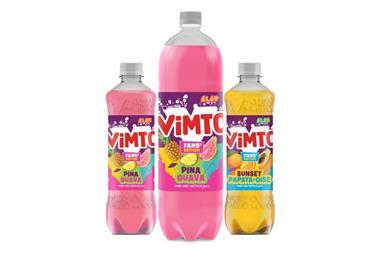

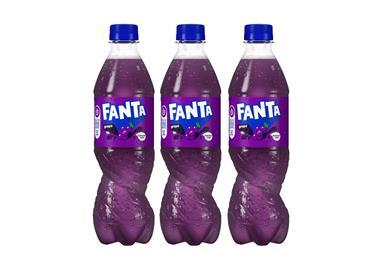
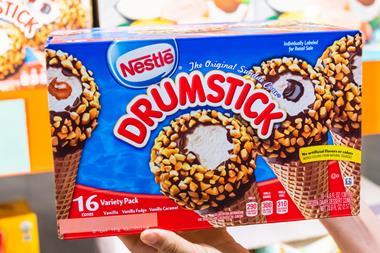
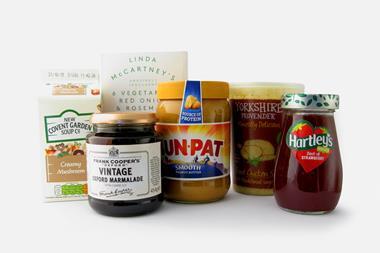

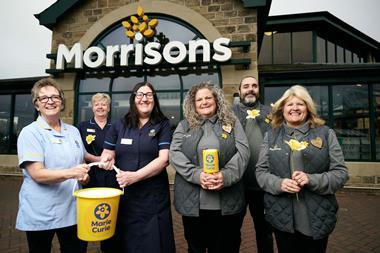
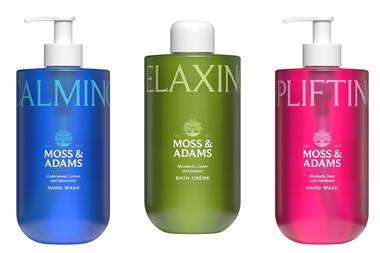
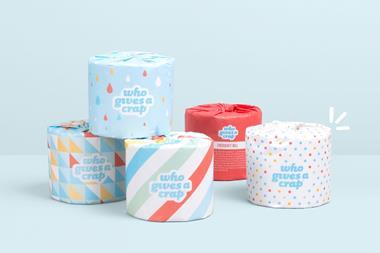
No comments yet